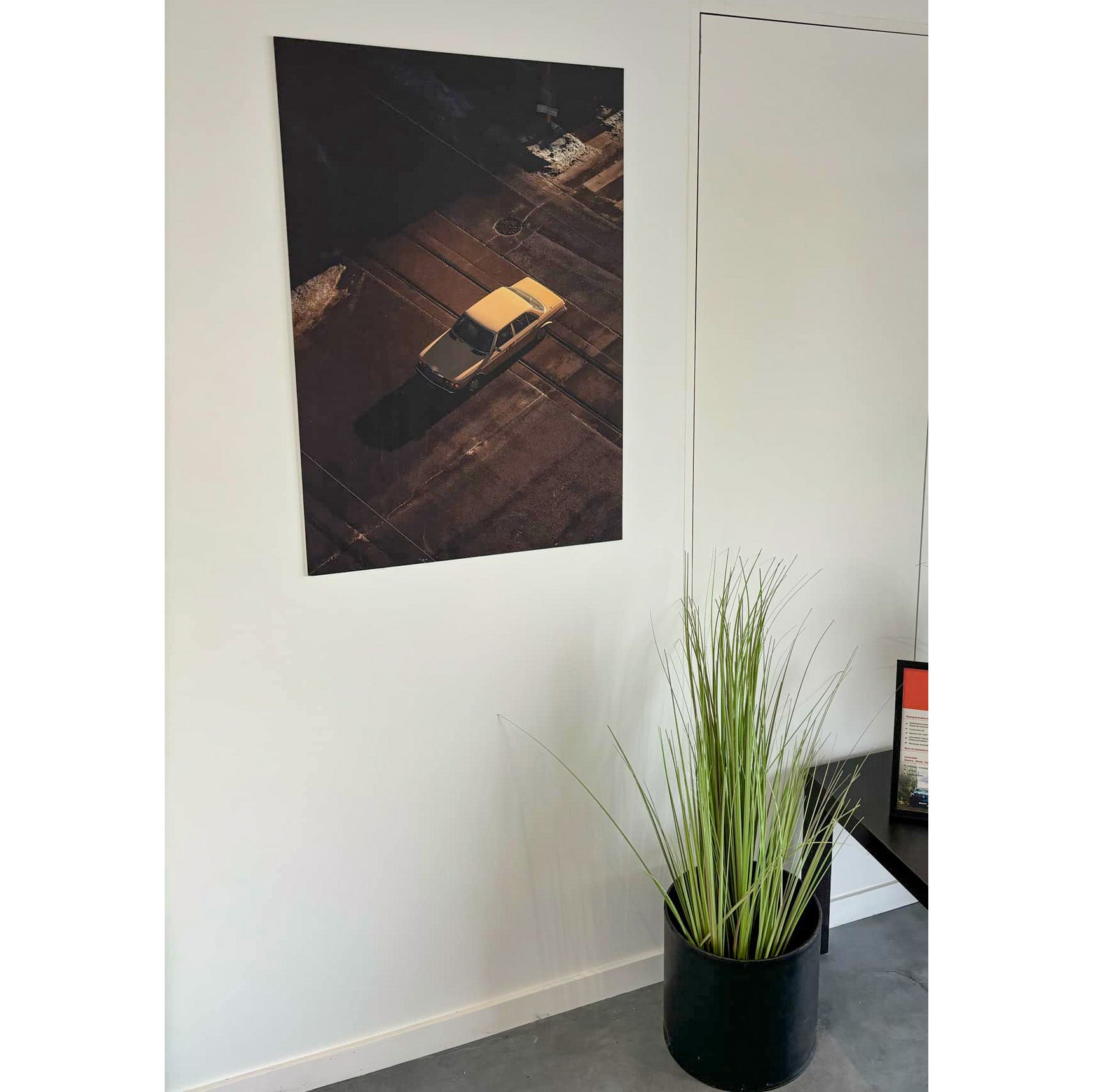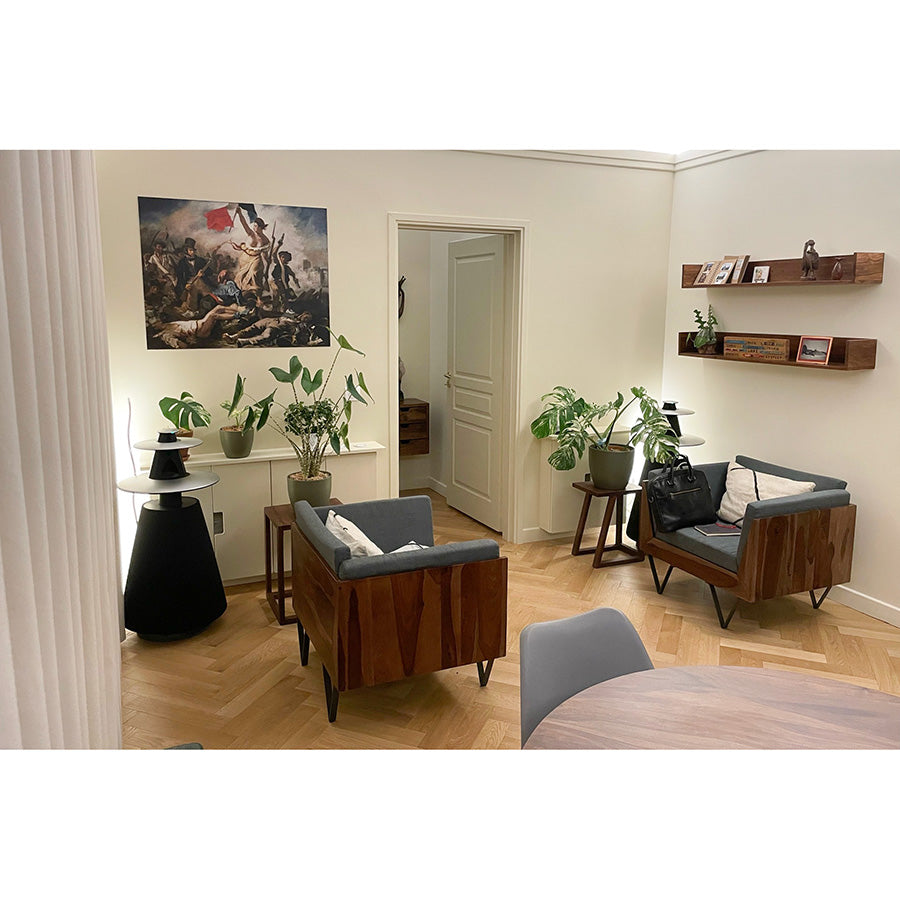Art print | Bedouin on horseback - Franz Josef Georg Illem


View from behind

Frame (optional)
In the vast universe of art, some works transcend the simple frame to become windows opening onto distant and fascinating worlds. The art print Bédouin à cheval - Franz Josef Georg Illem is a perfect example. This piece does not merely depict a man on horseback; it evokes a story, a culture, and an era when the desert was both a refuge and a challenge. Through mastery of light and color, Illem manages to capture the very essence of nomadic life, offering the viewer an immersion into a landscape that is both majestic and austere. The Bédouin, an emblematic figure of Arab tradition, embodies freedom and a deep connection to nature—universal themes that still resonate today.
Style and uniqueness of the work
Franz Josef Georg Illem's style is distinguished by his ability to blend realism and romanticism. In Bédouin à cheval, every detail is carefully considered, from the texture of the rider's clothing to the sun’s gleam on the sand dunes. The artist uses warm color nuances to evoke the heat of the desert climate, while shadows create a depth that draws the eye toward the infinite horizon. The rider’s posture, proud and confident, reflects an unbreakable bond with his horse, a symbol of strength and freedom. This work, with its balanced composition and dynamism, invites contemplation and reflection on the relationship between man and his environment. It stands out for its atmosphere, both peaceful and tinged with a certain melancholy, reminding us that every journey is also an inner quest.
The artist and his influence
Franz Josef Georg Illem, a 19th-century painter, established himself as a witness of his time, capturing scenes of life that testify to the sociocultural transformations of his era. Influenced by the great masters of the past, Illem developed a style that is uniquely his own, blending impeccable technique with deep artistic sensitivity. His interest in Eastern cultures and exotic landscapes is vividly expressed in Bédouin à cheval, a work that reflects his admiration for ancestral traditions.

Matte finish

View from behind

Frame (optional)
In the vast universe of art, some works transcend the simple frame to become windows opening onto distant and fascinating worlds. The art print Bédouin à cheval - Franz Josef Georg Illem is a perfect example. This piece does not merely depict a man on horseback; it evokes a story, a culture, and an era when the desert was both a refuge and a challenge. Through mastery of light and color, Illem manages to capture the very essence of nomadic life, offering the viewer an immersion into a landscape that is both majestic and austere. The Bédouin, an emblematic figure of Arab tradition, embodies freedom and a deep connection to nature—universal themes that still resonate today.
Style and uniqueness of the work
Franz Josef Georg Illem's style is distinguished by his ability to blend realism and romanticism. In Bédouin à cheval, every detail is carefully considered, from the texture of the rider's clothing to the sun’s gleam on the sand dunes. The artist uses warm color nuances to evoke the heat of the desert climate, while shadows create a depth that draws the eye toward the infinite horizon. The rider’s posture, proud and confident, reflects an unbreakable bond with his horse, a symbol of strength and freedom. This work, with its balanced composition and dynamism, invites contemplation and reflection on the relationship between man and his environment. It stands out for its atmosphere, both peaceful and tinged with a certain melancholy, reminding us that every journey is also an inner quest.
The artist and his influence
Franz Josef Georg Illem, a 19th-century painter, established himself as a witness of his time, capturing scenes of life that testify to the sociocultural transformations of his era. Influenced by the great masters of the past, Illem developed a style that is uniquely his own, blending impeccable technique with deep artistic sensitivity. His interest in Eastern cultures and exotic landscapes is vividly expressed in Bédouin à cheval, a work that reflects his admiration for ancestral traditions.









